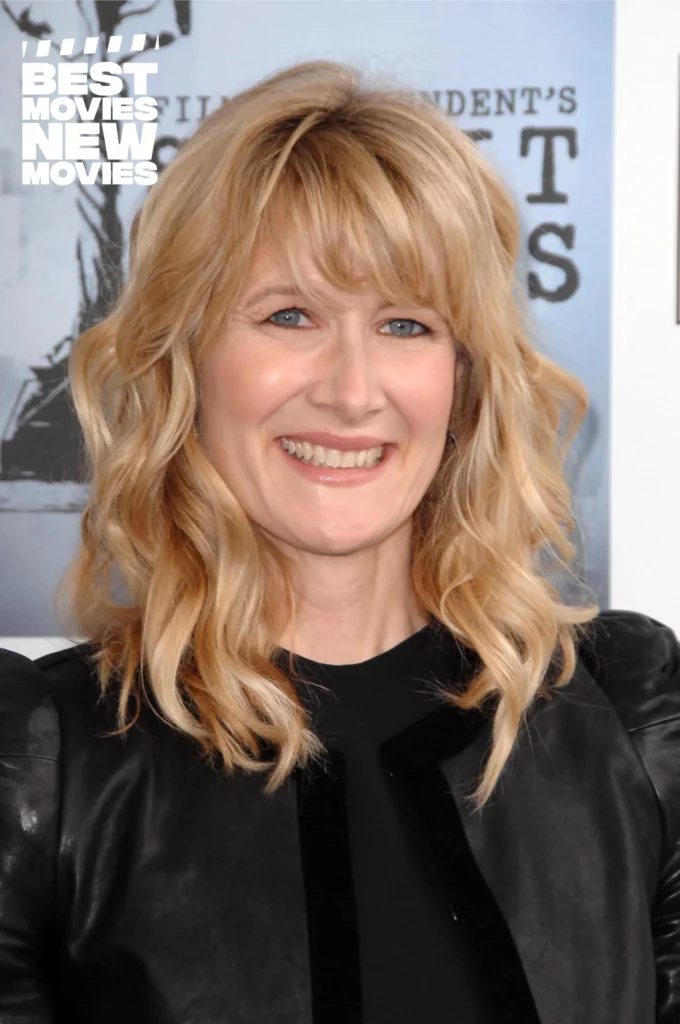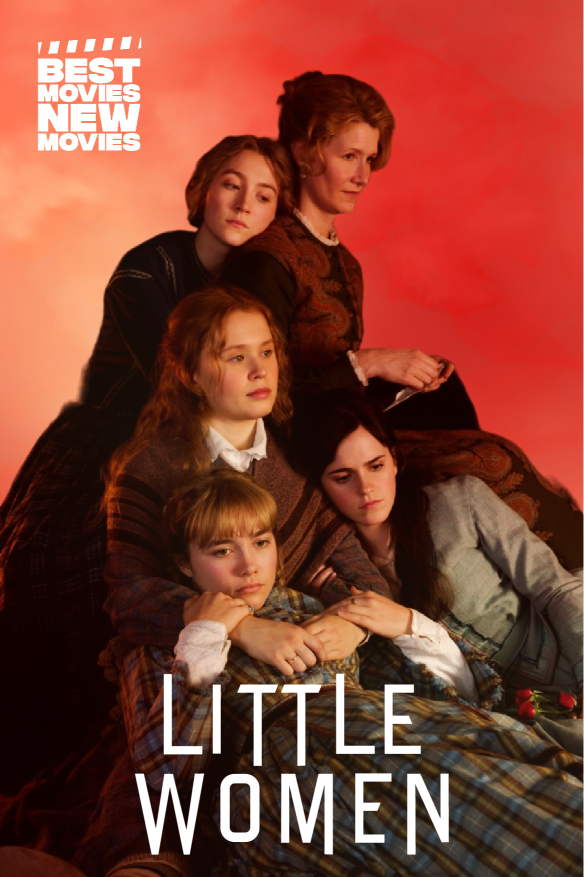Review
Have you ever chanced upon a film that blankets you in the warmth of a cosy embrace and yet simultaneously stirs up rousing discussions around women’s aspirations and societal norms? Goodness me, I’ve had that very experience too.
Curiously enough, Little Women (2019) was the seventh cinematic adaptation of Louisa May Alcott’s beloved classic novel, which wrapped me in this delightful dichotomy. In this blog post, we’ll amble through its heart-warming storyline, examine the astounding performances from an ensemble cast, marvel over remarkable production specifics and explore the international plaudits it so deservedly garnered.
Intrigued? Then let’s keep calm and carry on!
Synopsis of the Movie
Little Women (2019), directed by Greta Gerwig, is a film adaptation of Louisa May Alcott’s classic novel of the same name. The film reimagines the lives of the March sisters—Jo, Meg, Beth, and Amy—as they come of age in post-Civil War America.
The narrative is non-linear, weaving between the sisters’ adolescent years in the 1860s and their adult lives in the 1870s. In their youth, the March sisters experience the joys and struggles of growing up under the guidance of their mother, Marmee, while their father is away at war. The film captures their creative plays, their first encounters with love and loss, and their supportive bond.
Jo March is the film’s central character, an aspiring writer with a fierce spirit, determined to live life on her own terms. She moves to New York to pursue her literary ambitions and grapples with the challenges of being a woman writer in a male-dominated industry.
Meg March embodies the role of the responsible eldest sister who desires a conventional life of marriage and motherhood. Despite her love for luxury, she marries for love, not wealth, and faces the realities of her modest means.
Beth March is a quiet, musical sister whose health is fragile. Her close bond with their wealthy neighbour, Mr. Laurence and his grandson Laurie (Timothée Chalamet) forms a significant subplot, especially as her health begins to fail, leading to some of the film’s most poignant moments.
Amy March, the youngest sister, is ambitious and frank about the economic and social limitations placed on women. She travels to Europe with Aunt March and eventually reunites with Laurie, who becomes a key figure in her growth into an accomplished young woman.
Laurie becomes infatuated with Jo, but his proposal is rejected, as she values their friendship and her independence above the institution of marriage. The heartbroken Laurie travels to Europe, where he and Amy grow close, leading to an eventual marriage.
The adult lives of the sisters reflect the divergence of their paths but also their enduring connection to each other. Jo, inspired by her own story and her sister’s experiences, writes a novel entitled Little Women, which she ultimately agrees to publish, albeit with significant compromises.
The film culminates with the March sisters reunited at their childhood home, where they celebrate their collective achievements and remember Beth, who has succumbed to her illness. The final scenes suggest Jo’s book is printed and bound, symbolising the fruition of her dreams and the enduring legacy of the March family’s love and resilience.
Greta Gerwig’s Little Women provides both a faithful adaptation and a new interpretation, infusing the beloved story with contemporary themes of feminism, family, and self-determination while retaining the heartwarming spirit of Alcott’s seminal work.
Cast and Crew
The main cast of Greta Gerwig’s Little Women is comprised of a talented ensemble that brought the beloved March family and their extended circle to life with depth and vitality. Each actor lent a unique energy to their role, ensuring that their character resonated with both long-time fans and newcomers to the story.
Saoirse Ronan as Jo March

Saoirse Ronan played Josephine “Jo” March, the second eldest sister, known for her fiery independence, literary talent, and strong-willed nature. Ronan’s portrayal of Jo is magnetic and multifaceted; she captures Jo’s ambition and her progressive thinking that is ahead of her time. Ronan presents Jo’s conflicts and struggles with palpable intensity, depicting a young woman grappling with the constraints of her era while fiercely pursuing her dream of becoming a writer. Her chemistry with the rest of the cast is compelling, particularly in her scenes with Laurie and her mother, Marmee.
Emma Watson as Meg March

Emma Watson took on the role of the eldest March sister, Margaret “Meg” March. Meg is the more traditional sister, embodying the 19th-century ideals of domesticity and family life. Watson brings a gentle dignity and warmth to Meg, portraying her as a character whose dreams may be quieter but are no less profound. She navigates Meg’s internal conflicts between societal pressures and personal satisfaction with a sensitivity that underscores her character’s journey toward finding contentment in her roles as a wife and mother.
Florence Pugh as Amy March

Florence Pugh’s performance as the youngest March sister, Amy, is a revelation, reinterpreting a character often maligned by readers. Pugh presents Amy as forthright and ambitious, unapologetically pursuing her own dreams of artistic achievement and a favourable match in marriage. She captures the complexity of Amy’s evolution from a young girl with petty jealousies to a refined and thoughtful woman, displaying a depth that had often been overlooked in previous adaptations. Pugh’s Amy is a character study of the societal limitations faced by women and the savvy required to navigate them.
Eliza Scanlen as Beth March

Eliza Scanlen portrays Elizabeth “Beth” March, the third eldest sister, known for her sweet disposition and musical talent. Scanlen’s Beth is the heart of the March family, a gentle presence whose kindness and selflessness are felt throughout the film. Scanlen gives Beth a quiet strength and stoicism that make her moments of vulnerability all the more touching. The performance is nuanced, communicating Beth’s influence on her family and her pivotal role in their emotional lives, often without the need for words.
Laura Dern as Marmee March

Laura Dern embodies Marmee, the matriarch of the March family. Dern’s Marmee is a nurturing presence, offering wisdom and moral guidance to her daughters while harbouring her own quiet sorrows and revolutionary convictions. Dern manages to capture the complexity of a woman who is both of her time and beyond it, someone who supports her daughters’ individuality while teaching them the values of kindness and generosity.
Timothée Chalamet as Theodore “Laurie” Laurence

Timothée Chalamet brings to life the charming and capricious Theodore “Laurie” Laurence, the boy next door and the March sisters’ close friend. Chalamet’s Laurie is effervescent and endearing, exuding a youthful exuberance and a deep-seated yearning for belonging. His journey from a lighthearted companion to a more sombre figure who experiences his own set of disappointments is portrayed with sensitivity and emotional depth.
Meryl Streep as Aunt March

Meryl Streep plays the cantankerous Aunt March, who provides comic relief as well as a critical perspective on the societal expectations of women. Streep imbues the character with a formidable presence, delivering her lines with a sharp wit that both commands the scene and reveals the character’s underlying insights. Her Aunt March is at once daunting and endearing, offering a complex portrayal of a woman who has navigated the limitations of her sex with acerbity and shrewdness.
Each actor in Greta Gerwig’s Little Women delivers a performance that is faithful to Alcott’s characters and expands upon them, providing a nuanced and emotionally rich portrayal that adds new layers of meaning to this timeless narrative.
Little Women Through Greta’s Eyes
Greta Gerwig’s vision for Little Women went beyond merely reenacting a beloved classic; she sought to delve into the core of Louisa May Alcott’s 19th-century narrative and unravel its contemporary relevance, knitting a connection between Alcott’s time and our own. Her adaptation is an intricate dance of fidelity to the source material and bold cinematic innovation, honouring the past while speaking directly to the present.
Deconstructing Time and Narrative Structure
One of Gerwig’s most notable choices in her rendition of Little Women was the decision to present the story in a non-linear fashion. This daring structural alteration is not a mere stylistic choice but a profound reflection on the nature of memory and maturation. The intercutting between past and present becomes a visual and thematic dialogue about how the characters’ younger dreams, disappointments, and formative experiences directly inform their adult realities.
Gerwig emphasises the persistent relevance of their struggles by revisiting the sisters’ youthful aspirations in tandem with their adult confrontations with society’s expectations. This method allows the past to resonate with the future, giving the narrative a rhythm that speaks to the universal process of growing up and looking back.
Reimagining Jo March for the Modern Age
Central to Gerwig’s vision is the character of Jo March, portrayed by Saoirse Ronan, who embodies the ambitions, conflicts, and creative fervour of a young woman ahead of her time. Gerwig and Ronan together craft a Jo who is not just a reflection of Alcott’s own aspirations but also a mirror for the modern woman, artist, and thinker. They paint Jo’s determination to maintain ownership of her writing as a personal battle and a larger commentary on women’s rights and the creative industry’s challenges, echoing the ongoing debates around intellectual property and gender bias in the arts.
Expanding Amy’s World
Amy March, traditionally overshadowed by the more forceful personalities of her sisters, is given new life in Gerwig’s adaptation. Florence Pugh’s portrayal reveals Amy as a pragmatist with her own artistic ambitions and a profound understanding of the economic and social constraints placed on women. Gerwig provides Amy with a fleshed-out perspective, allowing her character to discuss the harsh realities of marriage as an economic proposition and the limitations placed on women artists. This renewed focus on Amy’s character development and her nuanced personal growth reflects Gerwig’s commitment to exploring each sister as a fully realised individual.
Emphasising the Role of Women and Art
Gerwig’s film is as much about the creation of art as it is about the creation of oneself. The meta-textual elements, especially the discussions surrounding the conclusion of Jo’s novel, are a significant aspect of Gerwig’s adaptation. The choice to foreground the negotiation scene between Jo and her publisher serves to highlight the sacrifices women often have to make to see their work in print. In a bold move, Gerwig blurs the lines between Jo and Alcott herself, suggesting a semi-autobiographical layer to the story and drawing a parallel between Jo’s triumphs and struggles and those of her creator.
Crafting a Visual Language
Aesthetically, Gerwig’s film is steeped in the warmth and vibrancy of the March household. Each frame is infused with an intimacy that feels both contemporary and timeless, a testament to Gerwig’s direction and the cinematography of Yorick Le Saux. The visual language of the film, with its lush colours and dynamic compositions, creates a sensory world that is as inviting as it is evocative.
A Review of Little Women (2019)
Greta Gerwig’s adaptation of Little Women is a cinematic gem that does more than merely dust off a 19th-century classic; it reinvigorates it with a palpable vivacity and relevance for a modern audience. Gerwig’s directorial prowess shines in her bold narrative choice to shuffle the March sisters’ timeline, allowing for an emotional resonance that oscillates gracefully between past and present.
Saoirse Ronan’s portrayal of Jo March is a revelation, bringing a raw, unbridled energy to the screen that captures the character’s literary and feminist ambitions with heartfelt precision. Florence Pugh’s Amy, often a character relegated to the sidelines, is reinvented as a compelling and complex figure, balancing ambition with emotional depth. The entire ensemble cast, including Emma Watson’s Meg and Eliza Scanlen’s Beth, brings an organic chemistry that makes the family dynamic shimmer with authenticity.
Box Office Performance
Little Women (2019) was a massive success at the box office, grossing over $216 million worldwide. Audiences flocked to see this captivating film adaptation of Louisa May Alcott’s classic novel.
Awards and Accolades
Little Women (2019) received widespread acclaim and garnered numerous accolades. The film was nominated for six Academy Awards, including Best Picture, Best Actress for Saoirse Ronan, and Best Supporting Actress for Florence Pugh.
The film only won the Oscar for Best Costume Design. Additionally, Greta Gerwig’s directing and writing were highly praised, earning her nominations at prestigious award shows such as the Golden Globes and BAFTAs. Little Women (2019) has been hailed as a beautifully crafted adaptation of a literary classic that resonates with audiences of all ages.
Gerwig’s Little Women is not just a retelling of a classic tale but a powerful, standalone masterpiece that speaks to the timeless struggles and joys of womanhood, creativity, and the pursuit of one’s own place in the world. It’s a film that manages to feel both cosily familiar and daringly new, ensuring its place in the pantheon of great literary adaptations. If you’re looking for a highly relatable, heartfelt movie, no matter the time period, then Little Women (2019) is the one to watch!
What is Little Women (2019) about?
Little Women (2019) is a film adaptation of Louisa May Alcott’s novel of the same name. It tells the story of the March sisters from childhood to adulthood.
Who stars in Little Women (2019)?
Little Women (2019) stars Saoirse Ronan, Emma Watson, Florence Pugh, Eliza Scanlen, Timothée Chalamet, Laura Dern, and Meryl Streep
Do any characters face illness in Little Women (2019)?
Yes, Beth March gets scarlet fever as a child and relapses as an adult, eventually dying from it.
Who does Meg marry in Little Women (2019)?
Meg March, the eldest March sister, marries John Brooke, a tutor. Despite John being poor, Meg marries him out of love.
